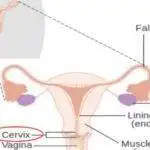
Table of Contents
Pre-bed protein is a common practice among fitness enthusiasts and health-conscious adults. The idea is to consume an adequate amount of protein between 30 to 60 minutes before bedtime. This helps to effectively drive muscle tissue recovery, repair, growth, and improved overall health while you sleep.
Protein before bedtime is also known to help with weight management by promoting satiety and reducing food cravings at night, as discussed in another article on how protein helps you lose weight.
For optimum benefits casein protein, with its slower absorption rate, is better taken as a pre-bed protein. Since your body can only utilize about 30 grams of protein per meal as discussed in a previous topic you may want to read, taking 20-30g of casein protein at night is more ideal.
We discussed the advantages of casein as nighttime protein in another topic where we made a comparison between casein and whey protein for weight loss. We also outlined the 12 points of difference between casein and whey protein on the same topic.
Endeavor keep in touch by signing up for our newsletter:
Pre-bed protein shake.
Protein shakes are known for their ease of preparation requiring only water or milk most times. This makes it ideal for athletes and bodybuilders with high protein requirements to maintain consistency in keeping to their nighttime protein intake routine. 20 to 30g of casein-rich protein shake is ideal for a pre-bedtime protein.
The slow-digesting and low absorption rate of casein protein provides a steady release of amino acids to the body during the night. By this. it also sustains protein synthesis over longer periods which enhances tissue repair and recovery while you sleep.
It is important to mind the caloric content of your nighttime protein shakes to avoid unintended weight gain over time. For this reason, shakes with low-glycemic carbs and healthy fats are advised. This combination not only helps in weight management but also in stabilizing your blood sugar levels in addition to promoting satiety or feelings of fullness for longer periods.
Pre-bed protein snack.
Protein snacks are another great way to consume more protein at bedtime. Unlike protein shakes, whole protein snacks are often packed with more nutrients in addition to proteins. You get essential vitamins and minerals from protein snacks which contribute significantly to your overall health.
Cottage cheese, Greek yogurts, nuts, and protein bars are some of the favorite snacks one can take before bedtime. Greek yogurt offers you quite a substantial amount of proteins plus probiotics which promote your gut health. A serving offers you about 10 – 20g of protein while a half cup of low-fat, casein-rich cottage cheese offers 14g.
Protein-rich nuts like almonds and walnuts can be added to your pre-sleep protein snack menu. Almonds provide you with a good balance of healthy fats and fiber in addition to proteins. 30g serving of almonds offers you up to 6g of protein.
Almond milk can also be added to protein shakes for an extra boost in protein content and improved taste as mentioned in a subtopic on almond milk protein shake.
Best pre-bed protein.

Whole foods should be part of an ideal pre-bed protein rather than supplements alone. Factors to consider when choosing your best pre-bed protein are:
- Your personal dietary preferences,
- State of Health,
- Allergies,
- weight management,
- Your daily protein requirement, etc.
For many people, casein-rich protein sources like cottage cheese and Greek yogurt are best for nighttime protein. This is due to the obvious advantages casein has over whey protein getting into a period of fasting like bedtime. We highlighted this in a table where we drew a 12-point difference between casein and whey protein as mentioned earlier in the previous section.
Be that as it may, a blended protein powder that combines casein and whey protein provides the advantage of immediate and long-term protein needs when taken at bedtime. This can be strategic for a balanced pre-sleep protein intake for some people provided the total protein consumption is kept within their body’s daily requirement to avoid the unwanted effects of excess protein intake.
Protein before bed benefits.
Scientific research underscores the importance of pre-sleep protein on several key metabolic processes and health benefits. A study published in the National Library of Medicine (NLM) examined the effect of dietary protein consumption before sleep. It showed that pre-bed protein ingestion effectively increases plasma amino acid availability and muscle protein synthesis rate stimulation among people of all age brackets.
In another study, pre-bed protein consumption was found to be effective in increasing the gains in muscle mass and strength during prolonged resistance-type exercise.

Contrary to what is believed, research hasn’t proven the positive effect of pre-bed protein on sleep quality, however, it has been found to improve sleep energy expenditure in a sedentary population.(source)
Finally, a low-carb bedtime protein snack like eggs has been proven to lower fasting glucose levels. It also improves the markers of insulin sensitivity in comparison to a high-carb pre-sleep protein snack like yogurt. However, it wasn’t found to reduce fasting glucose levels when compared to an isocaloric diet without sleep time snacks according to the research.
That’s all on this topic. Let’s hear your thoughts on it. Kindly use the comment section to drop your questions or input. See you on the next topic.































































































































































Informative post.
Undeniably believe that which you stated. You managed to hit the nail on the head. Will probably be back to for more. Thank you.